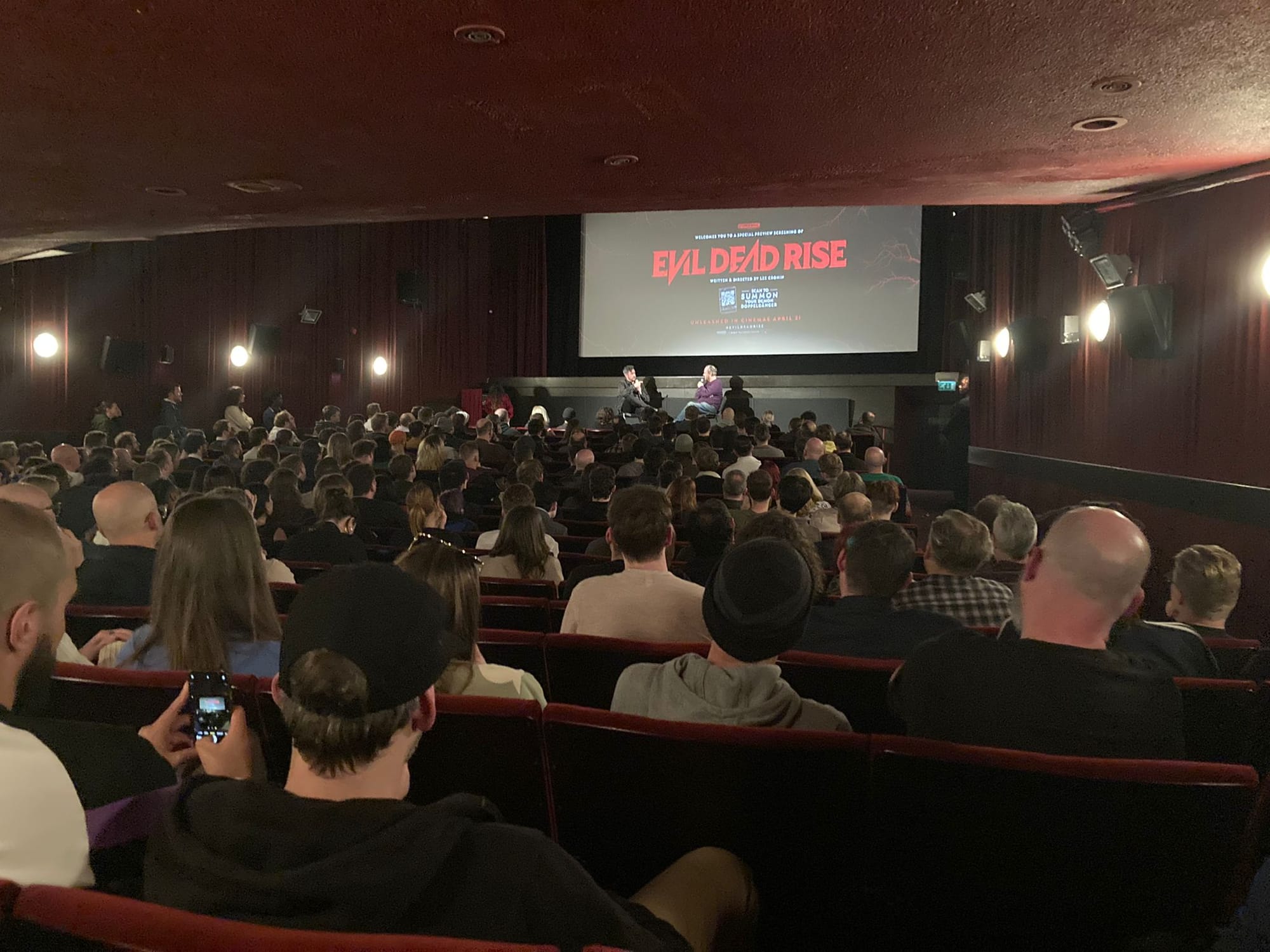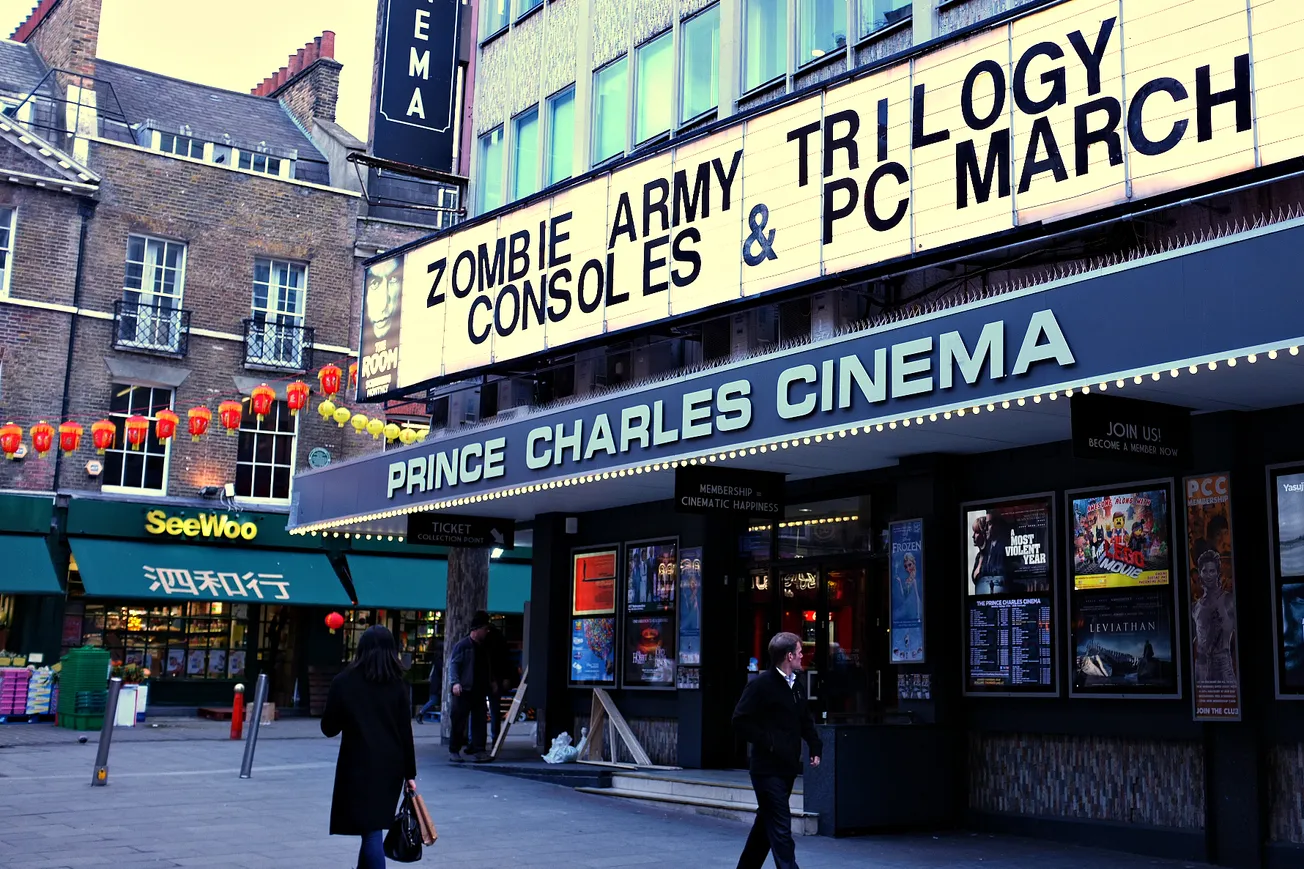The Princes Charles isn't just another cinema
The projection booth at the Prince Charles Cinema is a stuffy, cluttered room above a dingy Soho alleyway. It’s also extremely loud, due to the continuously whirring Cinemacanica Victoria 8 dual gauge projector which dominates the space. Distracted, I watch a trail of celluloid on its journey from material to immaterial, watch as it’s sucked around a spool and into the machine’s mouth before being vomited back up, first as raw silver light, then as the paranoid, McCarthyite world of Sidney Lumet’s 12 Angry Men.
“There is a huge element of convenience in terms of digital projection, but whether it's snob value or experiential value, film is a different experience,” explains Ben Freedman, the cinema’s managing director. Then he shrugs, “I couldn't care less… either I fall asleep or I don’t”. Freedman won’t have been sleeping much this past week. It’s been an extremely busy period — potentially the busiest of his career.
Last September, the Prince Charles sent a section 26 notice to their new landlord, Zedwell LSQ Ltd, asking for a new lease. The cinema is not the only commercial tenant of Zedwell, or its parent company, Criterion Capital, or Criterion’s billionaire CEO, Asif Aziz — known locally as ‘Mr West End’ for his vast central London portfolio. Aziz’s companies own the London Trocadero, the storied Shaftesbury Avenue entertainment complex which they refitted as a hotel complex with hundreds of windowless cocoons. Last year, they also acquired the first ever YMCA which, following a high court judgement, is set to close in a few months.

Aziz’s companies have received tough headlines for their treatment of tenants. During the pandemic, The Times asked if the Covid crisis had made him the “meanest landlord in Britain” — a high bar indeed. The article reported that requests from Criterion’s commercial tenants to pay monthly, rather than quarterly, were “met with demands for an extra 5% administration fee and an increased deposit”. One bar chain was reportedly threatened with a winding-up petition in March 2020 if it “missed a payment on the £375,000-a-year rent”.
Freedman says the Prince Charles was asking for a fifteen year lease at market rent, which they had proposed based on two separate surveyors' reports. When the landlord got back to them in January, their lawyers demanded a five year lease at double the market rent, as well as a six month break clause. To this day, Freedman says Zedwell is yet to provide research to back up the increased market rent — but the big problem was the break clause. “A six month break means you can't really invest any money in the business… So at that point we felt as if we were being intimidated in the negotiations and decided that our only option was to go public.”
Within 72 hours, a petition to save The Prince Charles Cinema had attracted over 100,000 signatures. Speaking to British GQ, Hollywood celebrities like Paul Mescal, Christopher Nolan and Danny Boyle waded in to defend it. Nosferatu director Robert Eggars said the cinema was one of his favourite places in London and that closing it down would be “a crime”. Seemingly, media outlets across the political spectrum were united in their outcry. However, few of them answered the question of why this two screen, Central London cinema means so much to so many, prompting my visit today.

Comments
How to comment:
If you are already a member,
click here to sign in
and leave a comment.
If you aren't a member,
sign up here
to be able to leave a comment.
To add your photo, click here to create a profile on Gravatar.






